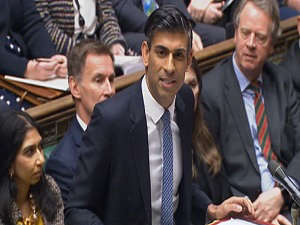
By Gavin Cordon and Dominic McGrath (PA)
Rishi Sunak is facing a damaging rebellion over his new deal on post Brexit trading arrangements for Northern Ireland after Tory hardliners said they will be voting against the Government in the Commons on Wednesday.
The European Research Group of Tory MPs said it is “strongly recommending” its members oppose regulations to implement the so-called Stormont brake – a key element of the Windsor Framework.
Following a meeting of the group members at Westminster, chairman Mark Francois said the agreement had been “rushed and over sold”.
Earlier, former prime ministers Boris Johnson and Liz Truss both said they will be voting against the Government.
With Labour backing the agreement, it is still expected to pass.
However, it will be seen as highly damaging to Mr Sunak if it only gets through with opposition votes.
Mr Francois said that around 30 MPs were present at the ERG meeting, where they were addressed by Sir Jeffrey Donaldson, the leader of the DUP, which has pulled out of powersharing at Stormont over the current trading arrangements and has come out against the agreement.
“Fundamentally this is all about upholding the Good Friday Agreement,” he said.
“The fact that the DUP has come out very firmly against it means that the deal has not gone far enough.”
Earlier in a statement, Mr Johnson said: “The proposed arrangements would mean either that Northern Ireland remained captured by the EU legal order – and was increasingly divergent from the rest of the UK – or they would mean that the whole of the UK was unable properly to diverge and take advantage of Brexit.
“That is not acceptable. I will be voting against the proposed arrangements today.
“Instead, the best course of action is to proceed with the Northern Ireland Protocol Bill, and make sure that we take back control.”
A source close to Ms Truss said she also plans to vote against it.
Ms Truss is understood to believe the Prime Minister’s Windsor pact does not “satisfactorily resolve the issues thrown up by” the Northern Ireland Protocol and “almost fatally impinges” on the UK’s ability to diverge from EU rules and regulations.
Other potential rebels include former home secretary Priti Patel and former Conservative Party leader Sir Iain Duncan Smith, who were both at the ERG meeting.
The confirmation by Mr Johnson of his opposition to the UK-EU deal comes ahead of his appearance before the Privileges Committee, where he will be grilled by MPs investigating claims that he knowingly misled Parliament over the partygate affair.
The former prime minister, who agreed the original Northern Ireland Protocol with Brussels as a way to avoid a hard border on the island of Ireland, had earlier this month indicated that he would find it “very difficult” to support the Windsor agreement.
In a show of blue-on-blue Tory infighting over Wednesday’s vote, Northern Ireland minister Steve Baker warned Mr Johnson he risks “looking like a pound-shop Nigel Farage” – a reference to the former leader of pro-Brexit party Ukip – if he votes against Mr Sunak’s protocol revisions.
Foreign Secretary James Cleverly is due to meet the EU’s Maros Sefcovic in London on Friday to formally adopt the Windsor pact at a meeting of the joint committee on the Withdrawal Agreement.
A Government source said this is “the best deal for Northern Ireland which ensures the smooth flow of internal UK trade, safeguards NI’s place in the Union and addresses the democratic deficit”.
“In negotiations, the PM secured significant concessions, with this deal going well beyond what had been on the table before. It goes much further than the Northern Ireland Protocol Bill and fixes the problems with the old protocol.
“Without the Windsor Framework, the legal default in domestic and international law is automatic alignment to EU standards and rules with no say in Northern Ireland.”
While the DUP is not in a position to block it, their opposition suggests that an early return to powersharing at Stormont is highly unlikely.
The Executive and Assembly have been suspended since the DUP walked out last year in protest at the way the protocol was operating, saying it weakened Northern Ireland’s position in the UK.
Downing Street has indicated that there could be further votes in the weeks ahead on the statutory instruments needed to implement other elements of the framework.
However, there is frustration among some MPs that Mr Sunak is resisting calls for an overall vote on the whole framework document.
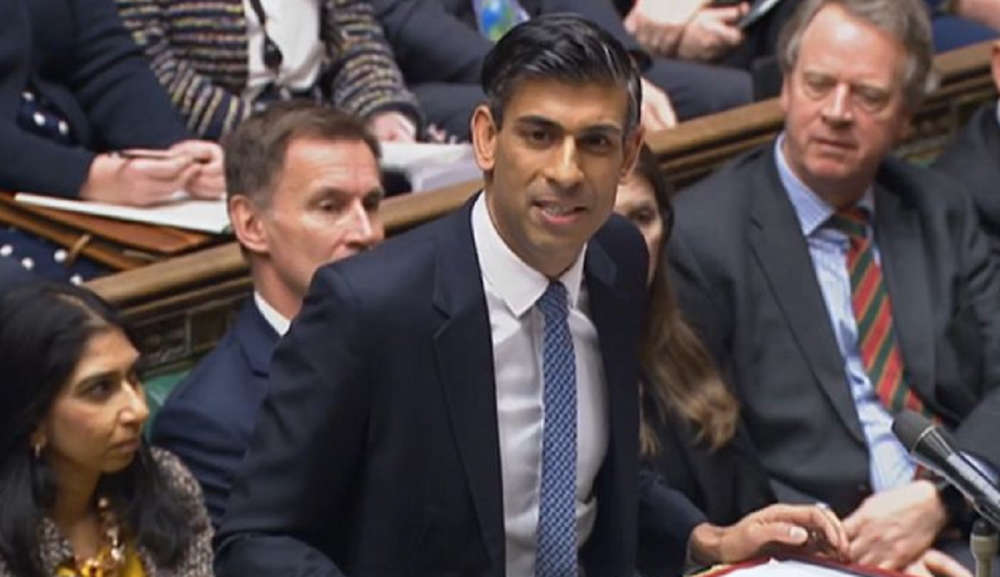


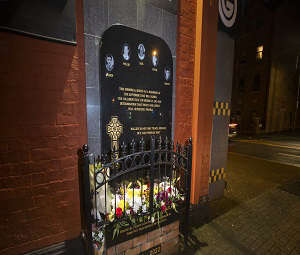 Officer to be prosecuted for offence linked to Troubles memorial during pandemic
Officer to be prosecuted for offence linked to Troubles memorial during pandemic
 Pair appear before court charged with nurse’s murder
Pair appear before court charged with nurse’s murder
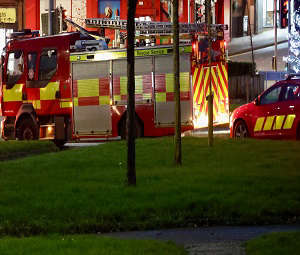 Woman dies in West Belfast house fire
Woman dies in West Belfast house fire
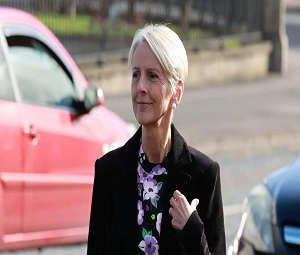 Eleanor Donaldson’s bid to have two charges withdrawn ‘should not delay trial’
Eleanor Donaldson’s bid to have two charges withdrawn ‘should not delay trial’
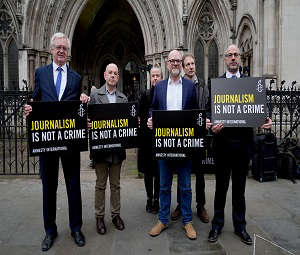 Police surveillance operation to unmask journalistic source ruled unlawful
Police surveillance operation to unmask journalistic source ruled unlawful